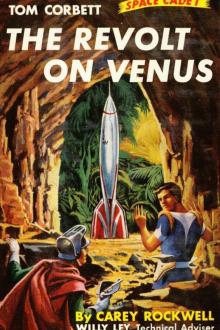Hypatia — or New Foes with an Old Face by Charles Kingsley (e book reader TXT) 📗

- Author: Charles Kingsley
Book online «Hypatia — or New Foes with an Old Face by Charles Kingsley (e book reader TXT) 📗». Author Charles Kingsley
She dared not reflect, she dared not hope, she dared not rejoice, lest she should break the spell.... Again and again had she broken it at this very point, by some sudden and tumultuous yielding to her own joy or awe; but now her will held firm.... She did not feel her own limbs, hear her own breath.... A light bright mist, an endless network of glittering films, coming, going, uniting, resolving themselves, was above her and around her.... Was she in the body or out of the body?.... ...............
The network faded into an abyss of still clear light.... A still warm atmosphere was around her, thrilling through and through her .... She breathed the light, and floated in it, as a mote in the mid-day beam.... And still her will held firm. ...............
Far away, miles, and aeons, and abysses away, through the interminable depths of glory, a dark and shadowy spot. It neared and grew.... A dark globe, ringed with rainbows.... What might it be? She dared not hope.... It came nearer, nearer, nearer, touched her.... The centre quivered, flickered, took form—a face. A god’s? No—Pelagia’s.
Beautiful, sad, craving, reproachful, indignant, awful.... Hypatia could bear no more: and sprang to her feet with a shriek, to experience in its full bitterness the fearful revulsion of the mystic, when the human reason and will which he has spurned reassert their God-given rights; and after the intoxication of the imagination, come its prostration and collapse.
And this, then, was the answer of the gods! The phantom of her whom she had despised, exposed, spurned from her! ‘No, not their answer—the answer of my own soul! Fool that I have been! I have been exerting my will most while I pretended to resign it most! I have been the slave of every mental desire, while I tried to trample on them! What if that network of light, that blaze, that globe of darkness, have been, like the face of Pelagia, the phantoms of my own imagination—ay, even of my own senses? What if I have mistaken for Deity my own self? What if I have been my own light, my own abyss?.... Am I not my own abyss, my own light—my own darkness?’ And she smiled bitterly as she said it, and throwing herself again upon the couch, buried her head in her hands, exhausted equally in body and in mind.
At last she rose, and sat, careless of her dishevelled locks, gazing out into vacancy. ‘Oh for a sign, for a token! Oh for the golden days of which the poets sang, when gods walked among men, fought by their side as friends! And yet.... are these old stories credible, pious, even modest? Does not my heart revolt from them? Who has shared more than I in Plato’s contempt for the foul deeds, the degrading transformations, which Homer imputes to the gods of Greece? Must I believe them now? Must I stoop to think that gods, who live in a region above all sense, will deign to make themselves palpable to those senses of ours which are whole aeons of existence below them? Degrade themselves to the base accidents of matter? Yes! That, rather than nothing!.... Be it even so. Better, better, better, to believe that Ares fled shrieking and wounded from a mortal man—better to believe in Zeus’s adulteries and Hermes’s thefts—than to believe that gods have never spoken face to face with men! Let me think, lest I go mad, that beings from that unseen world for which I hunger have appeared, and held communion with mankind, such as no reason or sense could doubt—even though those beings were more capricious and baser than ourselves! Is there, after all, an unseen world? Oh for a sign, a sign!’
Haggard and dizzy, she wandered into her ‘chamber of the gods’; a collection of antiquities, which she kept there rather as matters of taste than of worship. All around her they looked out into vacancy with their white soulless eyeballs, their dead motionless beauty, those cold dreams of the buried generations. Oh that they could speak, and set her heart at rest! At the lower end of the room stood a Pallas, completely armed with aegis, spear, and helmet; a gem of Athenian sculpture, which she had bought from some merchants after the sack of Athens by the Goths. There it stood severely fair; but the right hand, alas! was gone; and there the maimed arm remained extended, as if in sad mockery of the faith of which the body remained, while the power was dead and vanished.
She gazed long and passionately on the image of her favourite goddess, the ideal to which she had longed for years to assimilate herself; till—was it a dream? was it a frolic of the dying sunlight? or did those lips really bend themselves into a smile?
Impossible! No, not impossible. Had not, only a few years before, the image of Hecate smiled on a philosopher? Were there not stories of moving images, and winking pictures, and all the material miracles by which a dying faith strives desperately—not to deceive others—but to persuade itself of its own sanity? It had been—it might be—it was—!
No! there the lips were, as they had been from the beginning, closed upon each other in that stony self-collected calm, which was only not a sneer. The wonder, if it was one, had passed: and now—did her eyes play her false, or were the snakes round that Medusa’s head upon the shield all writhing, grinning, glaring at her with stony eyes, longing to stiffen her with terror into their own likeness?
No! that, too, passed. Would that even it had stayed, for it would have been a sign of life! She looked up at the face once more: but in vain—the stone was stone; and ere she was aware, she found herself clasping passionately the knees of the marble.
‘Athene! Pallas! Adored! Ever Virgin! Absolute reason, springing unbegotten from the nameless One! Hear me! Athene! Have mercy on me! Speak, if it be to curse me! Thou who alone wieldest the lightnings of thy father, wield them to strike me dead, if thou wilt; only do something!—something to prove thine own existence—something to make me sure that anything exists beside this gross miserable matter, and my miserable soul. I stand alone in the centre of the universe! I fall and sicken down the abyss of ignorance, and doubt, and boundless blank and darkness! Oh, have mercy! I know that thou art not this! Thou art everywhere and in all things! But I know that this is a form which pleases thee, which symbolises thy nobleness! T know that thou hast deigned to speak to those who—Oh! what do I know? Nothing! nothing! nothing!
And she clung there, bedewing with scalding tears the cold feet of the image, while there was neither sign, nor voice, nor any that answered.
On a sudden she was startled by a rustling near; and, looking round, saw close behind her the old Jewess.
‘Cry aloud!’ hissed the hag, in a tone of bitter scorn; ‘cry aloud, for she is a goddess. Either she is talking, or pursuing, or she is on a journey; or perhaps she has grown old, as we all shall do some day, my pretty lady, and is too cross and lazy to stir. What! her naughty doll will not speak to her, will it not? or even open its eyes, because the wires are grown rusty? Well, we will find a new doll for her, if she chooses.’
‘Begone, hag! What do you mean by intruding here?’ said Hypatia, springing





Comments (0)